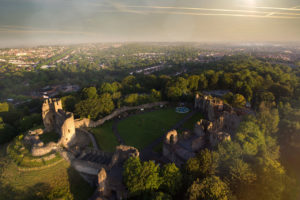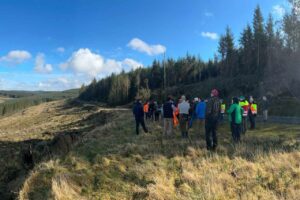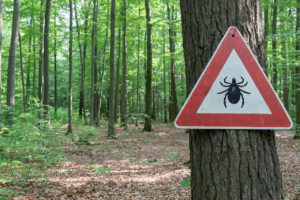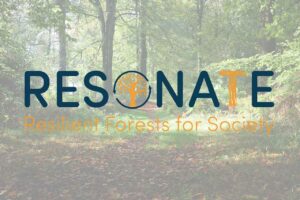The Black Country, an area within the West Midlands, has decided to focus on its green infrastructure, by taking a detailed look at the structure and composition of its urban forest. The study will provide valuable information about the trees that grow there: which species are resident, how sustainable the trees are, and what they are contributing to the environment, as well as to the people who live and work there. This information will help the Black Country to make informed management decisions about its trees, well into the future.
The study, which commenced in June 2021, and is due to complete in October 2022, is being led by the Black Country Consortium Ltd and is funded by The Woodland Trust. It involves a partnership led by consultancy Treeconomics, together with Forest Research, Birmingham Tree People, and Barton Hyett Associates. Together, the team will work to identify the area’s overall tree cover, where the trees are situated, their condition, and importantly, the environmental benefits they are delivering year on year. These ecosystem services are increasingly important to us now that our climate is in a state of change, and mental health issues are rising.
Emma Forde of the Black Country Consortium, commented: “The Black Country has rich, natural environmental assets, but too many of these assets are inaccessible or not celebrated. The perception of the Black Country is often one of heavy industry, but the region is predominantly green; one of trees and open spaces. It is this image that we wish to see brought to the forefront, enhancing green assets and making them more accessible to local people and visitors. The environment is critical to the health and well-being of future residents, workers and visitors to the Black Country. It is also both a major contributor to, and measure of, wider goals for sustainable development and living, as well as being significantly important to the economy of the region. This i-Tree Eco study will provide evidence to these claims.”
The Black Country is considered one of the birthplaces of the industrial revolution. So it is fitting that a green infrastructure study be carried out here, since the area was, in the mid-19th century, renowned for its high levels of air pollution, hence its name. But there are many tree species here, and the benefits they provide are significant. Just how significant will be revealed as the study progresses.
Ian McDermott of Birmingham Tree People, added: “We were delighted to be part of this project, one of the biggest studies in the UK, utilising volunteers from within the community. We are grateful to the BCC for having the foresight to include this requirement in the tender and we have already gotten several tree wardens through their i-Tree training modules and out into the field.”
Data collection for this study will be carried out by teams of experienced surveyors, supplemented by trained volunteers. They will measure the trees on both public and private land, across 1,000 sample plots, in a variety of urban locations: parks, woodlands, as well as public and private land. Once the fieldwork is complete, the data will be analysed using ‘i-Tree’, a software suite used around the world to assess the structural value and environmental benefits of urban trees.
Over 30 similar projects have now been carried out in the UK, following the success of the pilot i-Tree project in Torbay in 2010.
Nadine Moreby, Treeconomics






